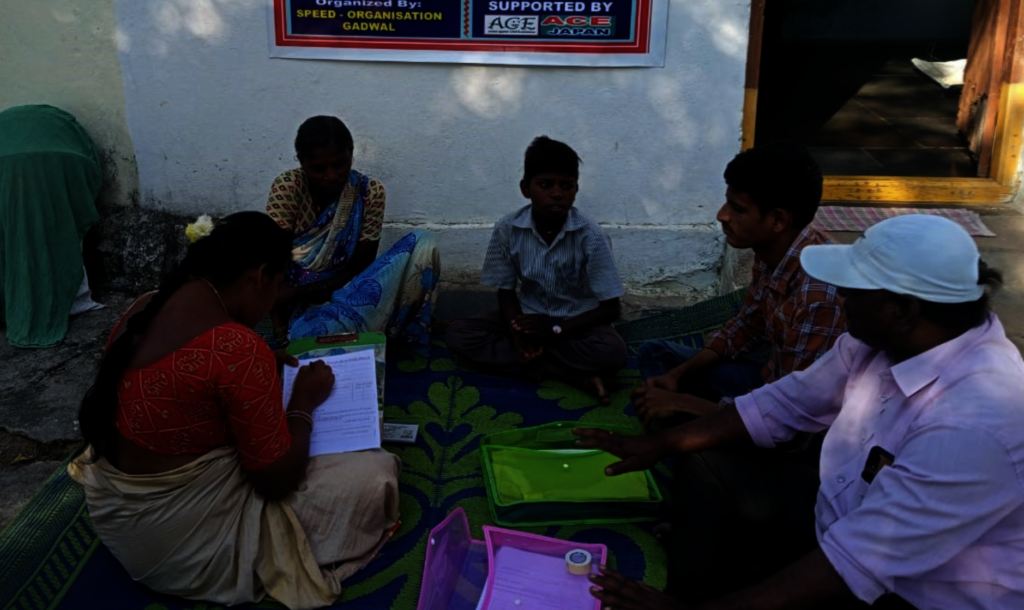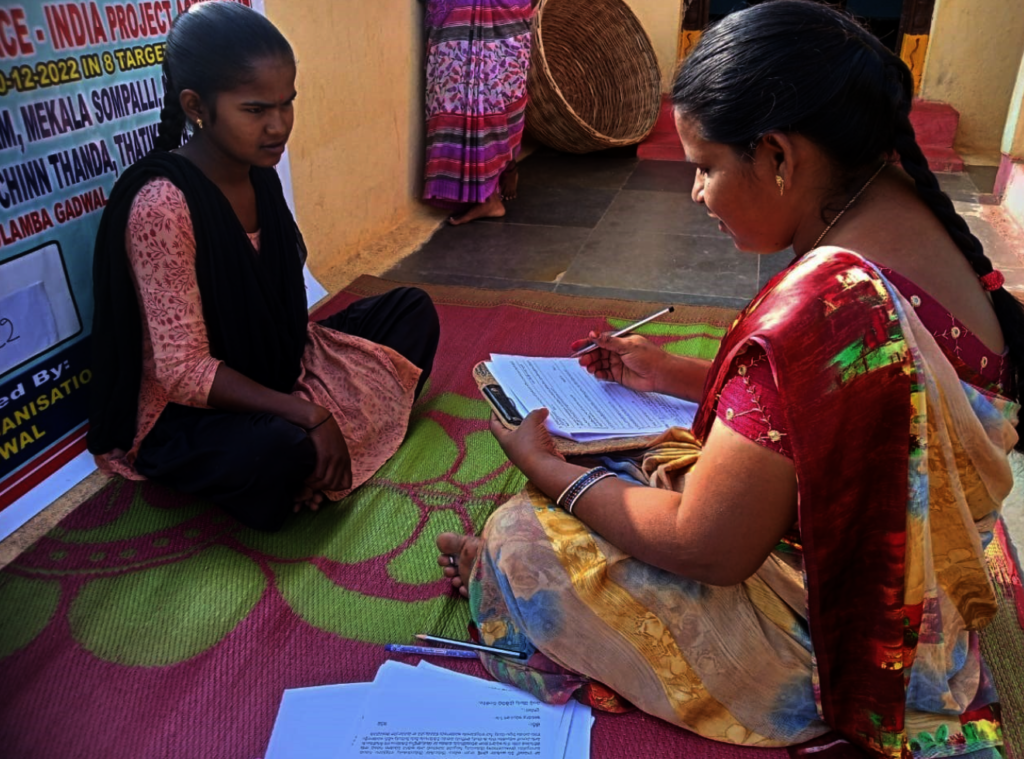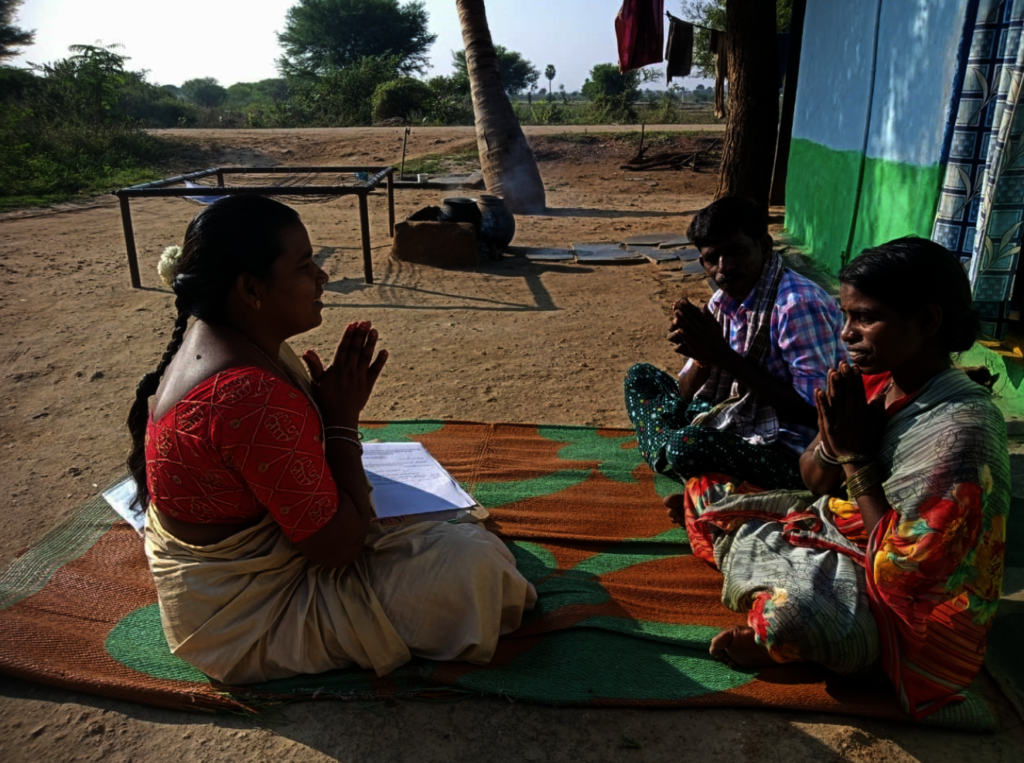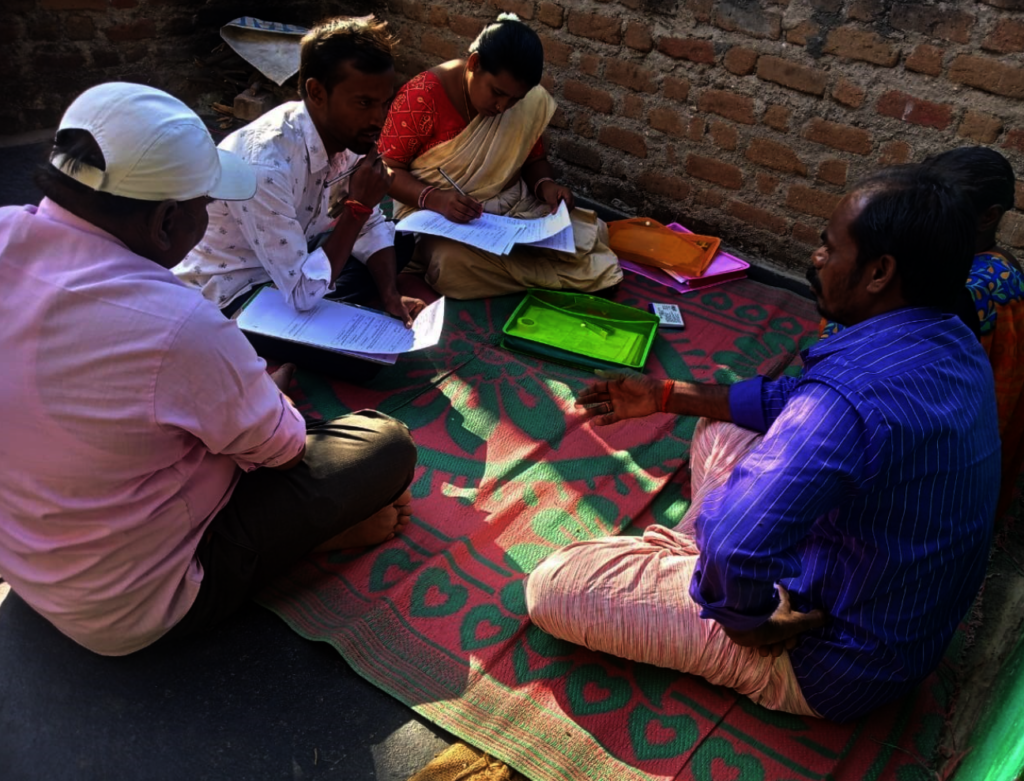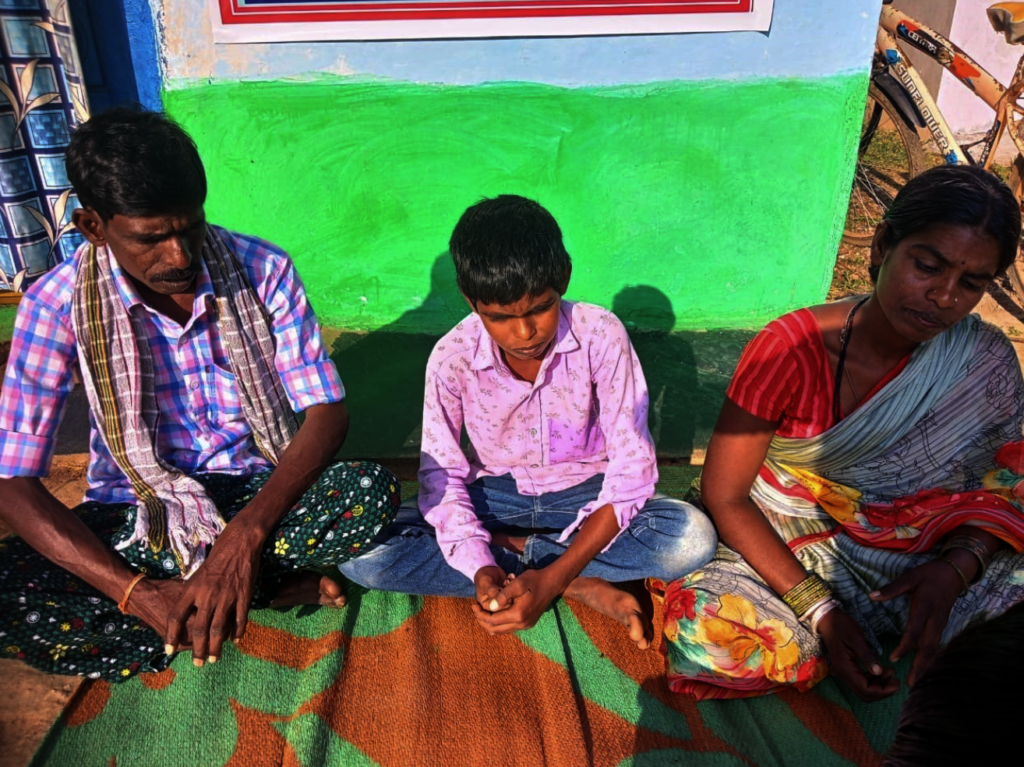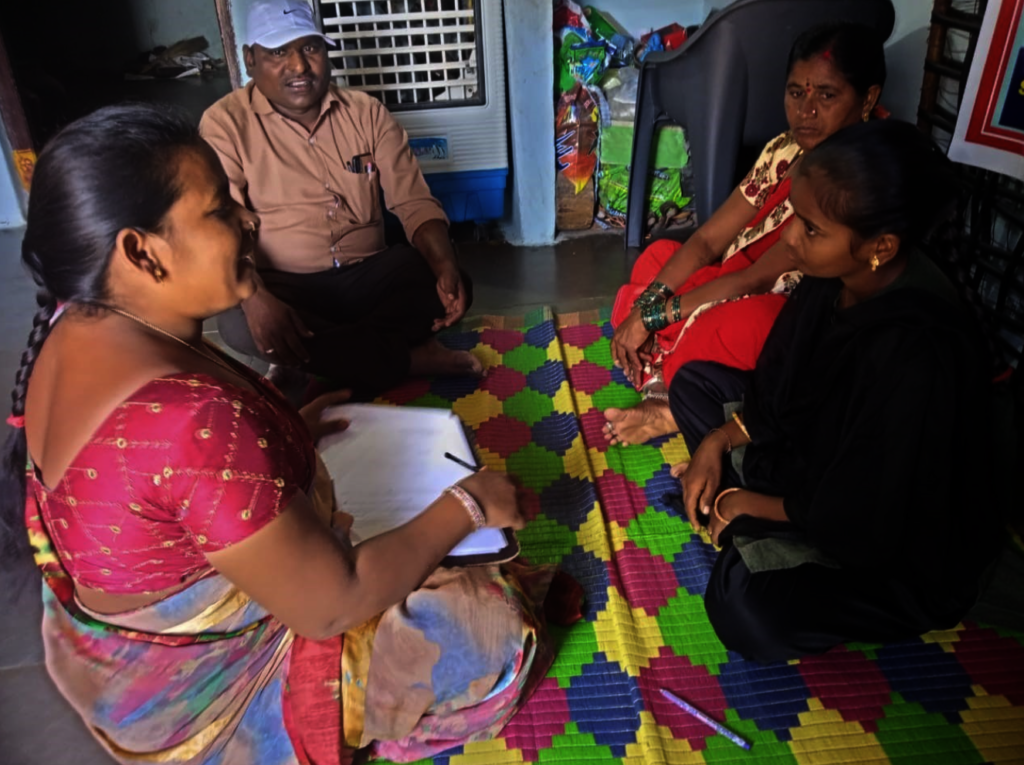By Mizuki Mori | India Project Manager
Thank you very much for your warm support for ACE.
We have been conducting the "Peace India Project" in a cotton-producing community in Telangana State, India, with the support of its local partner organization SPEED, to protect children from child labour and support their education.
In this report, we would like to talk about a participatory project evaluation conducted in a village where we implemented the project.
Participatory evaluation is an evaluation approach that allows a wide range of stakeholders, including beneficiaries, to participate in the evaluation process and contribute to empowerment and organizational improvement through project understanding, raising awareness, and capacity development.
The Peace India Project has been implemented in six villages over the past 10 years. To investigate the effectiveness of the project and whether "child labour free villages" are being maintained, we conducted interviews with beneficiaries and stakeholders in each of these villages.
Voices of children and villagers
Ansh (pseudonym), who used to work in the cotton fields and now attends the Bridge School, was asked, "Do you see any change in the children as a result of the project?" He answered, "Before, my parents used to tell me to work, but now they have started to understand the importance of children's education and I am able to go to the bridge school”.
Ansh also told us, "I went to a festival held in my village*, and I learned there that child labour is against the law”
*event for children to raise awareness about the importance of education and child labor.
Interviews with other children revealed that "before most of the children around me used to work in the cotton fields, but now most of them go to school," and "now I go to school every day, so I think I am getting a good education." One child said, "Before there were no toilets at school, so sometimes I didn't go to school, but now the toilets have been improved".
Aria (pseudonym), who received vocational training to become a tailor, said, "I think the awareness towards girls has changed since the project was implemented, especially the parents. When she was asked if she knew about children's rights, she answered, "Yes, I know about them. Right to Freedom, Right to protect, Right to live”.
On the other hand, through this project evaluation, we were also informed that there are children who have returned to work in the cotton fields in some villages where we have completed our project. It was confirmed that there were children who returned to the cotton fields to work instead of going to school, especially during the busy months of July and August.
We will continue to work closely with the villagers to establish a system where all children can receive an education and maintain a "child labour free village" and will continue to provide the best ways to encourage self-reliance.
Thank you so much for your continued support!
.
Project reports on GlobalGiving are posted directly to globalgiving.org by Project Leaders as they are completed, generally every 3-4 months. To protect the integrity of these documents, GlobalGiving does not alter them; therefore you may find some language or formatting issues.
If you donate to this project or have donated to this project, you can recieve an email when this project posts a report. You can also subscribe for reports without donating.
